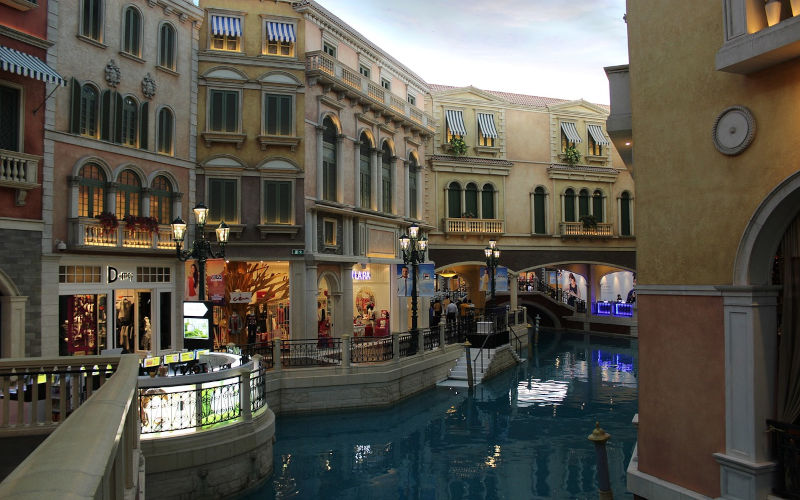By Jerry Grey

Zhongshan, where I live, is only about 40 kilometres as the crow flies from the Special Administrative Region of Macao, described as “China’s Pearl” by Xi Jinping. The name is apt, Macao sits at the entry of the Pearl River opposite Hong Kong and has, in recent years, shown both robust growth and remarkable stability.
Just five years before I arrived in China, on December 20, 1999, the Chinese government restored its sovereignty over Macao, ushering the city into a new phase of development. As a “foreigner” living in the Greater Bay Area I’ve been lucky enough to visit Macao many times so, I thought this 25th Anniversary, which happens to be in the 75th year of the PRC, is a good time to make some observations about the place.
First of all, it’s been interesting to watch how the place has changed. When I first came here and wanted to visit Macao, it was a very slow process usually requiring an overnight stay. Starting with two hours on a bus, before leaving the Mainland at Gongbei in Zhuhai which could take several hours too, it’s now down to 16 minutes on a high speed train. Allowing for getting to the station, the entire process from leaving home to the 10 minutes or so to leave the Mainland and enter the SAR, now takes less than an hour.
Back then, Macao was famous for gambling and tourism. Unfortunately, organised crime goes hand in hand with it; it’s no secret that there’s a lot of money to be made from gambling, but there’s a lot more to be made from criminal activities surrounding it. Money laundering is a problem, which Australia is experiencing right now. Like Las Vegas, Monaco and every other place where gambling exists, organised crime has been part of it and Macao was no exception. Prostitution was common in any of the casinos with plenty of European beauties parading around. If they are still there, and it would be naive to suggest they aren’t, they are most certainly more discrete.
Surprisingly, at least for me, those businesses didn’t appear to do very well, or if they did, they were very good at hiding it from the government. At the time it was handed back, the GDP of Macao was going backwards. When a place is so popular and thousands of people are coming to gamble, spend money and have holidays, but it’s still showing a loss, then there’s obviously something wrong. What was wrong was that much of the money was hidden in “black markets”; there was plenty in circulation, it was just hidden under the table.
China changed all that and although the criminals and perhaps some of the less honest customers weren’t too happy, people who live in Macao, people who want a holiday and people who just want to have some fun in a casino, are well-pleased. The treasury and local government must be pleased about it too, because since sovereignty was restored, the economy has risen sevenfold to make Macao the second richest city in the world. Instead of all that money going into deep criminal pockets, it’s now going into infrastructure and lifestyle improvements for the people.
Looking around the Region, it’s obvious that many people don’t come here just for gambling. The Region is diversifying and growing in many other ways. Each time I visit I’m amazed by this diversification. Retail is huge, there are literally thousands of people coming here on a daily basis from the Mainland, 320,000 a day at one crossing alone (Gongbei) and many more coming across the new bridge or on ferries from Hong Kong.
But it isn’t just the daily visitors helping the economy. Because of space limitations (Macao has the world’s highest population density), there were issues with how the Region could grow. Those concerns were eased in 2021 when it was proposed to use Hengqin, a part of Zhuhai, as a Deep Cooperation Zone. There’s a new Science and Technology Park in Hengqin, and a massive push into both traditional medicines and new medical developments as well as huge trade increases with the Portuguese-speaking world. The addition of Hengqin has done several things for Macao. It’s allowed businesses to expand, it’s opened Macao’s businesses to more Chinese clients and Chinese businesses can access Macao’s markets more easily. Universities and science institutions are growing there too.
On a different note, there are now many countries, including Australia, able to visit China visa-free for 30 days. There’s a very useful trick to get the most out of a journey without the constraints of a 30-day departure. Visitors to China can get to either Hong Kong or Macao easily and, because of the “One Country-Two Systems” policy, have effectively left the Mainland, meaning they can spend a few days in Macao (or Hong Kong) and then re-enter China’s Mainland for another 30 days.
Macao has a unique feature in that, in the space of just a few minutes, visitors can walk out of an international hotel, turn a corner into an ancient Cantonese town with Lingnan culture, local foods and drinks, and moments later stop in a square reminiscent of Lisbon for a meal in a Portuguese restaurant. They can shop for global brands after lunch and enjoy legal cards or roulette games in an ultra modern casino in the evening.
Macao, once a poor outpost of Portuguese expansion into Asia and a hotbed of crime and criminal activity has, since returning to China, turned into a wealthy city with great infrastructure recognised globally as a safe, stable and diversified destination for both tourists and businesses. No wonder Xi Jinping calls it “China’s Pearl”.